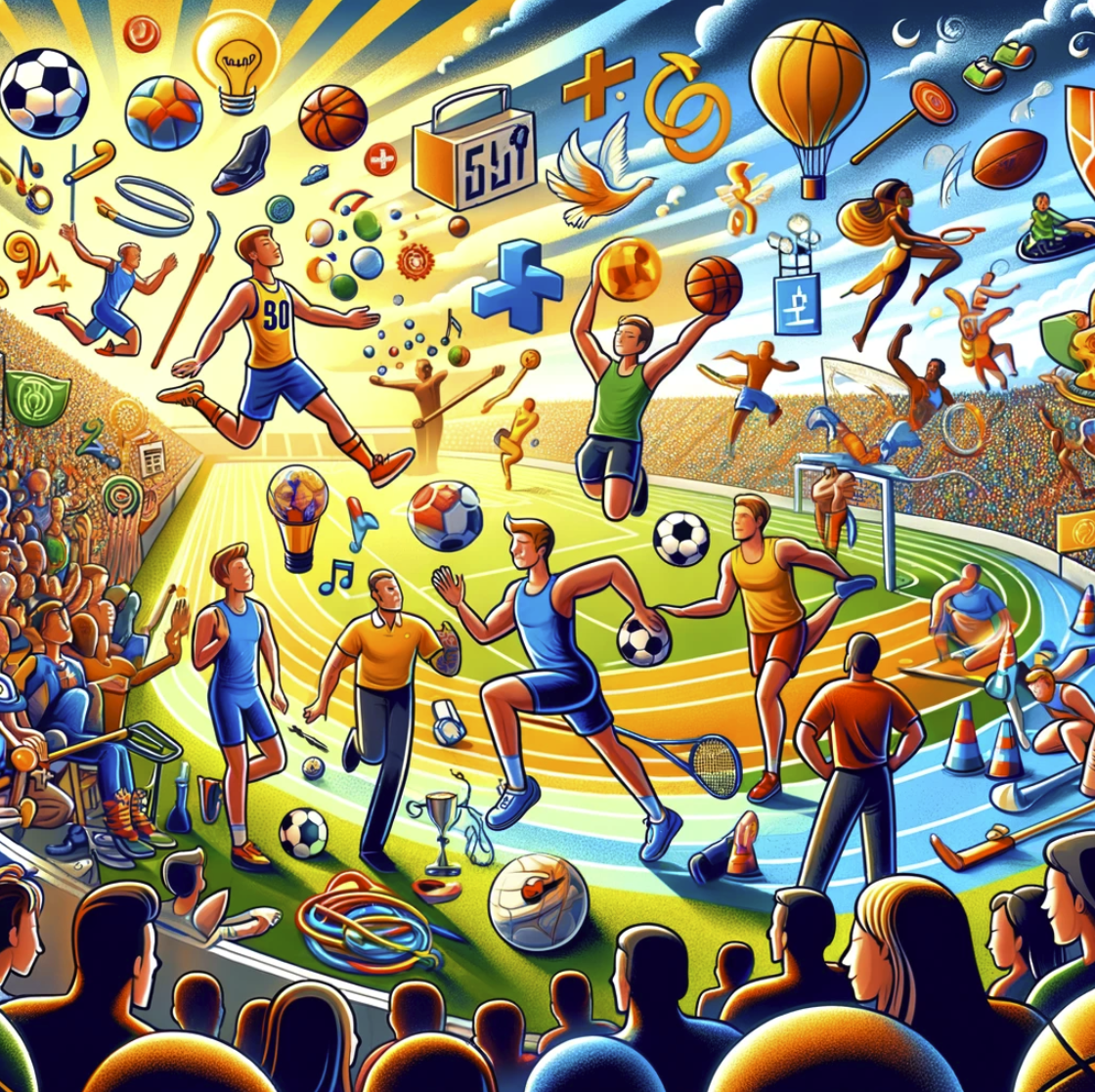Here’s a look at the philosophy of sports, looking into key themes:
What is Sport?
- Beyond Play: Philosophers distinguish sport from mere games or playful activity. Sport usually involves rules, competition, and the pursuit of excellence within a defined physical skillset.
- The Value of Rules: Rules create structure and meaning in sport. They provide a framework for fair competition and a means to measure achievement objectively.
- Skill vs. Luck: Sports emphasize the development and demonstration of skill. Yet, chance and external factors also play a role, prompting debates about fairness and the nature of true success.
The Nature of Competition
- The Drive to Win: Understanding the motivation to compete is core to sports philosophy. Is it about intrinsic enjoyment, the desire to test oneself, the pursuit of glory, or a combination of factors?
- Cooperation Within Competition: Even individual sports involve teamwork (think coaches, support staff). The interplay between individual drive and collaboration within a competitive setting is a rich topic for analysis.
- Sportsmanship and Ethics: “Fair play” is central to sport. Analyzing what this means in practice, handling cheating scandals, and balancing ruthless competitiveness with compassion sparks ethical inquiry.
The Beauty of Sport
- Aesthetics of Movement: Sports can showcase the beauty of the human body in motion. Philosophers analyze this aesthetic appeal, comparing it to dance or other art forms.
- The Drama of the Narrative: Sports offers compelling narratives of victory, defeat, rivalry, and redemption. This storytelling aspect, with its unpredictable nature, contributes to its emotional power.
- Sport and the Sublime: Some argue sports can evoke a sense of awe and transcendence akin to powerful experiences in nature or in spiritual contexts.
Sport and Society
- Identity and Community: Sports teams offer powerful sources of both local and national identity. Sports fandom can foster a sense of belonging but also raise questions about excessive tribalism.
- Sport and Politics: Sports are never fully separate from broader social concerns. Issues of race, gender, commercialization, and international relations all intersect with the world of sports.
- Athletes as Role Models: Philosophers debate the extent to which athletes are held to a higher moral standard and whether their private lives should be scrutinized alongside their sporting achievements.
Contemporary Issues
- Technology and Fairness: Technology increasingly impacts sport (performance-enhancing drugs, instant replay). This forces consideration of the balance between innovation and ensuring a level playing field.
- The Spectacle of Sport: The commercialization of sports raises questions about the balance between pure athletic pursuit and entertainment value driven by financial interests.
- Inequity in Sport: Access to sport, resources, and opportunities remain unequal. Examining issues of race, gender, disability, and economic barriers through a philosophical lens is vital.
Skill vs. Variance
Let’s look into the fascinating interplay of skill and luck (variance) within the philosophy of sports:
The Paradox of Skill
- The Greater the Skill, the Greater the Role of Luck: At first, this seems counterintuitive. In highly skilled domains like professional sports, even the tiniest bit of luck can tip the scales. This is because with greater skill, the margins become narrower, leaving less room for error and making random occurrences more impactful.
- Example: Imagine two golfers of equal skill. A slightly stronger gust of wind for one player could be the difference between making par and a devastating bogey.
Skill vs. Control
- What’s Within Control: Athletes primarily focus on the controllable – training, strategy, mental preparation. Luck, by definition, is outside their control. However, skill increases the probability of a favorable outcome.
- Managing “Bad Luck”: A skilled athlete has the mental resilience and adaptable strategies to mitigate the impact of bad luck. This is a form of control in itself.
- Philosophy of Chance: Does chance exist, or is it just unknown factors? This metaphysical debate influences how we view athletic success as being “deserved” or not.
Leveling the Playing Field
- Handicaps and Formats: Many sports incorporate mechanisms to compensate for luck and increase fairness. Handicaps in golf, seeding in tournaments, or even draft picks in team sports aim to create conditions where skill is the primary determinant of the outcome.
- Arguments for and Against: Is artificially minimizing the role of luck desirable in sport? Some argue unpredictability is part of the excitement. Others emphasize that a true test of skill requires as much fairness as possible.
The Spectators’ Perspective
- Narrative and Excitement: Luck adds to the drama of sport. Unpredictable upsets and unlikely comebacks fuel compelling storylines that draw us in as fans.
- Appreciating Skill Within Variance: Savvy spectators understand the presence of luck even when skill is dominant. This allows for admiration of an athlete’s performance even when the outcome doesn’t always reflect their ability.
Attributing Success and Failure
- Moral Luck: To what extent is an athlete “responsible” for their win or loss when luck is a factor? This raises questions of fairness, praise, and blame in sports.
- Internal vs. External Attribution: Psychologically, athletes who focus excessively on bad luck might hinder their improvement. Recognizing what is within their control is crucial for continued skill development.
The Philosophy of Skill vs. Luck in Sports is Ongoing
This debate isn’t about diminishing the importance of hard work and talent. Rather, it forces us to consider:
- What constitutes ‘true’ success in sport?
- How should we narrate sporting stories that acknowledge both skill and chance?
- How can sport maximize fair competition while retaining the unpredictable elements that add to its appeal?


